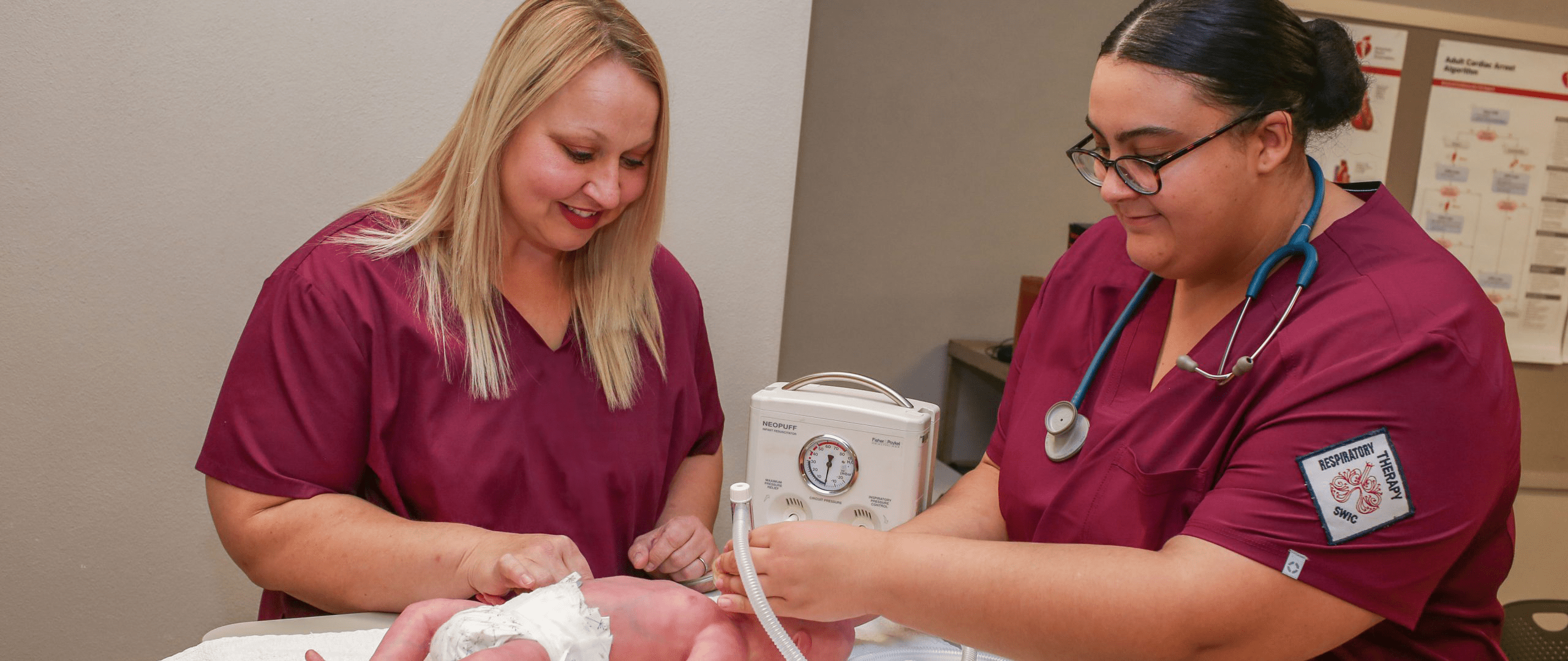Respiratory Care Career Overview
Job Description
The SWIC Respiratory Care (RC) program prepares students for entry-level practitioner positions in the respiratory care profession.
Respiratory Therapists:
- Assist in the prevention, treatment and rehabilitation of pulmonary problems (under the supervision of a physician)
- Monitor, evaluate and report patients’ cardiopulmonary status
- Provide treatments to keep the airway open
Respiratory Therapists assist in:
- Sleep studies
- Metabolic studies
- Patient and family education
- Home care
- Discharge planning and follow up
- Outpatient pulmonary rehabilitation
Career Resources
The American Association for Respiratory Care (AARC) website provides career information.
The U.S. Department of Labor Occupational Outlook Handbook provides additional information.
Job Opportunities
Although most Respiratory Therapists work in hospitals, there are also opportunities in:
- Clinics
- Skilled care facilities
- Physician’s offices
- Home health care agencies
- Medical product companies
Career Outlook
According to the U.S. Department of Labor 2022-32 Occupational Outlook Handbook, job opportunities for Respiratory Therapists are excellent, especially for therapists with experience working with infants. Employment of respiratory therapists is expected to grow by 13 percent, much faster than the average for all occupations.
Salary
Average Starting Salary
The average starting salary is $77,000 depending on the size and location of the health care facility.
Average Salary with Credentials
Hourly base wage at primary job.
According to results from the 2020 American Association for Respiratory Care (AARC) human resource survey, the typical respondent to the survey earned an hourly base (before differentials for evening and night shifts, weekends, holidays, and on-call) wage of $33.56. However, one-half of this sample earned less than $31.66/hour. Approximately 68% of the sample earned between $23.48/hour and $43.64/hour, a range defined by one standard deviation above and below the mean.
Additional $ per hour differentials earned at primary job.
Therapists in this sample who worked the evening shift typically earned an additional $2.05 to $2.91/hour, while those who worked the night shift typically earned an additional $3.00 to $3.92/hour. Those working on the weekend typically earned an additional $2.50 to $3.69/hour. Stronger variability was observed in the differential for holiday and on-call work. On-call differential also showed a lot of variability with a range for the typical therapist between $2.50 and $8.01/hour. Holiday differentials showed the greatest variability ranging between $15.00 and $22.25 for the typical therapist in this sample.
College degree earned.
Of the participating respondents, there were more than four therapists who graduated with an associate degree for every therapist who graduated with a bachelor’s degree from their respiratory therapy program.
Work Cited:
Shaw R., Benavente B. (2020). AARC Human Resource Survey of Respiratory Therapists. American Association for Respiratory Care. https://www.aarc.org/wp-content/uploads/2018/06/aarc-hr-study-rt.pdf
